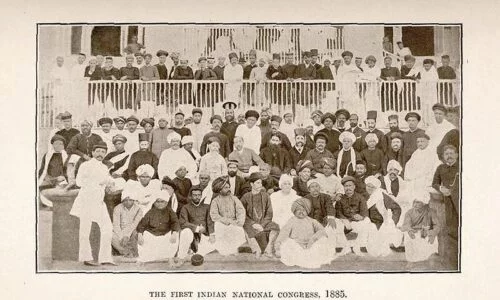
Indian National Congress
The Indian National Congress was formed in 1885 as a secular political party and they were primarily interested in reforming the way India was ruled by kings. The early Congress was not associated with any particular religion – it included Hindus, Christians, Muslims and Parsis but the majority of its membership was made up of Hindus – and its founding members were educated in or lived in Britain.
During the early 20th century, Congress’s interests evolved from wanting greater independence within the British Empire to wanting greater control over its own government. The Congress said they represented all Indians, however, the Muslim League was formed in 1906 to represent the interests of Indian Muslims, about three-quarters of whom were Hindus.
congress history
The Indian National Congress has been the ruling party of India for most of its independent history, from 1947 to 1989 and again from 1991 to 1996. The social-liberal platform of the party is generally considered to be on the centre-left of Indian politics.
The party has fractured several times since its founding due to internal workings and differences of opinion, with the largest split occurring in 1969 when Indira Gandhi established the Congress (I) faction, which became the dominant group within the party. Another significant split occurred in the late 1990s, when the Congress (I) faction rebranded itself as the Indian National Congress under the leadership of Sonia Gandhi to distinguish itself from the newly formed party called the Nationalist Congress Party. The primary ideologies of the Indian National Congress have over time become Gandhian socialism, social democracy and populist democracy. Congress was last in power from 2004 to 2014 and Manmohan Singh was the Prime Minister. The current party president is Rahul Gandhi, who replaced Sonia Gandhi in 2017.

Jawaharlal Nehru joined the Congress in 1919 and over time started working closely with Mohandas Gandhi. Both Nehru and Gandhi played important roles in the Indian independence movement and negotiations.
After the First World War (1914–18) the Congress joined hands with the Muslim League to advocate Home Rule within the British Empire. Home rule had already been granted in Canada, Australia and New Zealand. In 1920, influenced by Gandhiji, who launched a non-violent civil disobedience campaign after the massacre of civilians in Amritsar, Congress started a movement to boycott British rule. While many members of the Muslim League were critical of British rule, they opposed this policy of non-cooperation.
Founder
The Indian National Congress has been the ruling party of India for most of its independent history, from 1947 to 1989 and again from 1991 to 1996. The social-liberal platform of the party is generally considered to be on the centre-left of Indian politics.
The party has fractured several times since its founding due to internal workings and differences of opinion, with the largest split occurring in 1969 when Indira Gandhi established the Congress (I) faction, which became the dominant group within the party. Another significant split occurred in the late 1990s, when the Congress (I) faction rebranded itself as the Indian National Congress under the leadership of Sonia Gandhi to distinguish itself from the newly formed party called the Nationalist Congress Party. The primary ideologies of the Indian National Congress have over time become Gandhian socialism, social democracy and populist democracy. Congress was last in power from 2004 to 2014 and Manmohan Singh was the Prime Minister. The current party president is Mallikarjun Kharge, who replaced Rahul Gandhi in 2022.
First president
The first President of the Congress was Womesh Chandra Banerjee, a Bengali barrister. Bonnerjee was elected at the first Congress session in Bombay in 1885.


